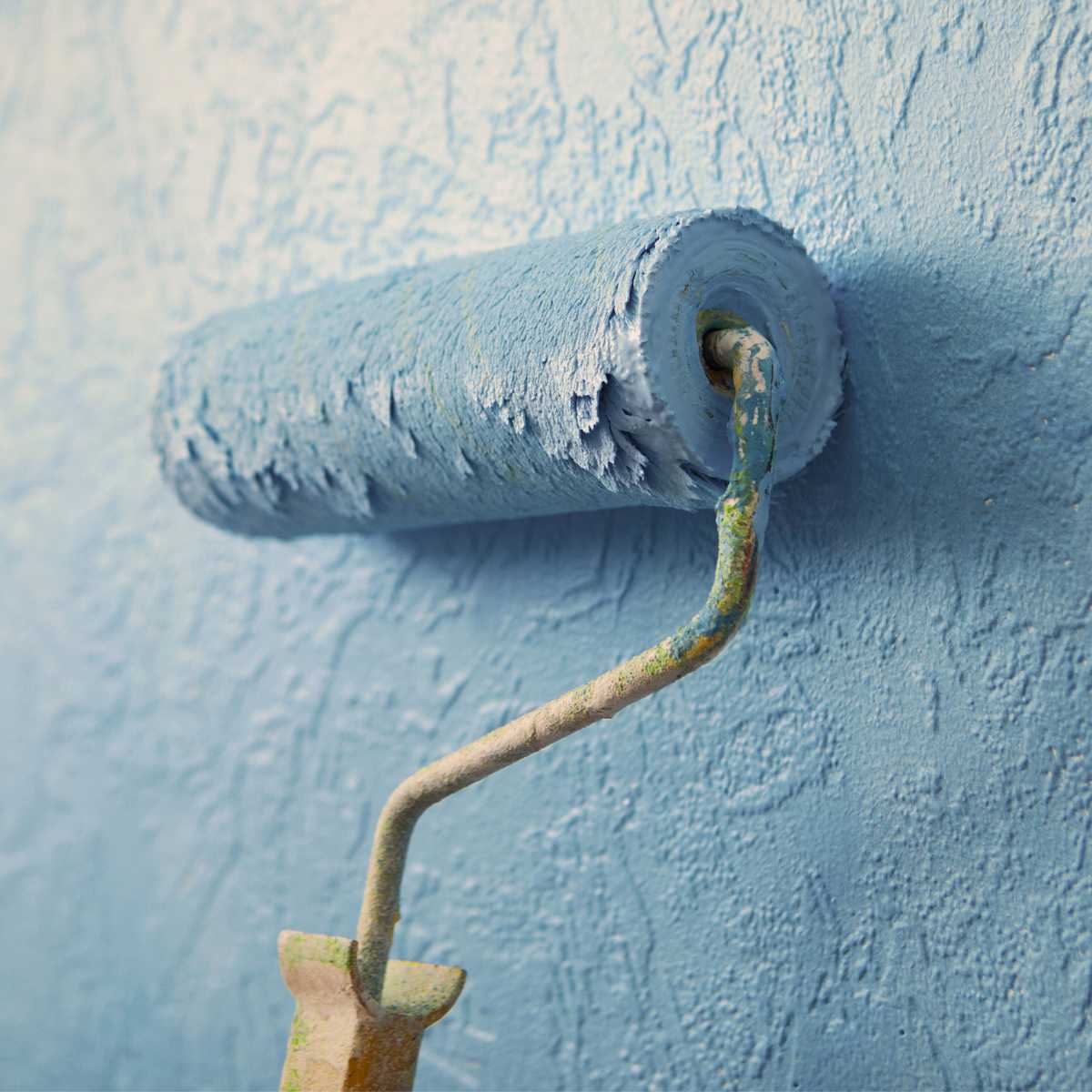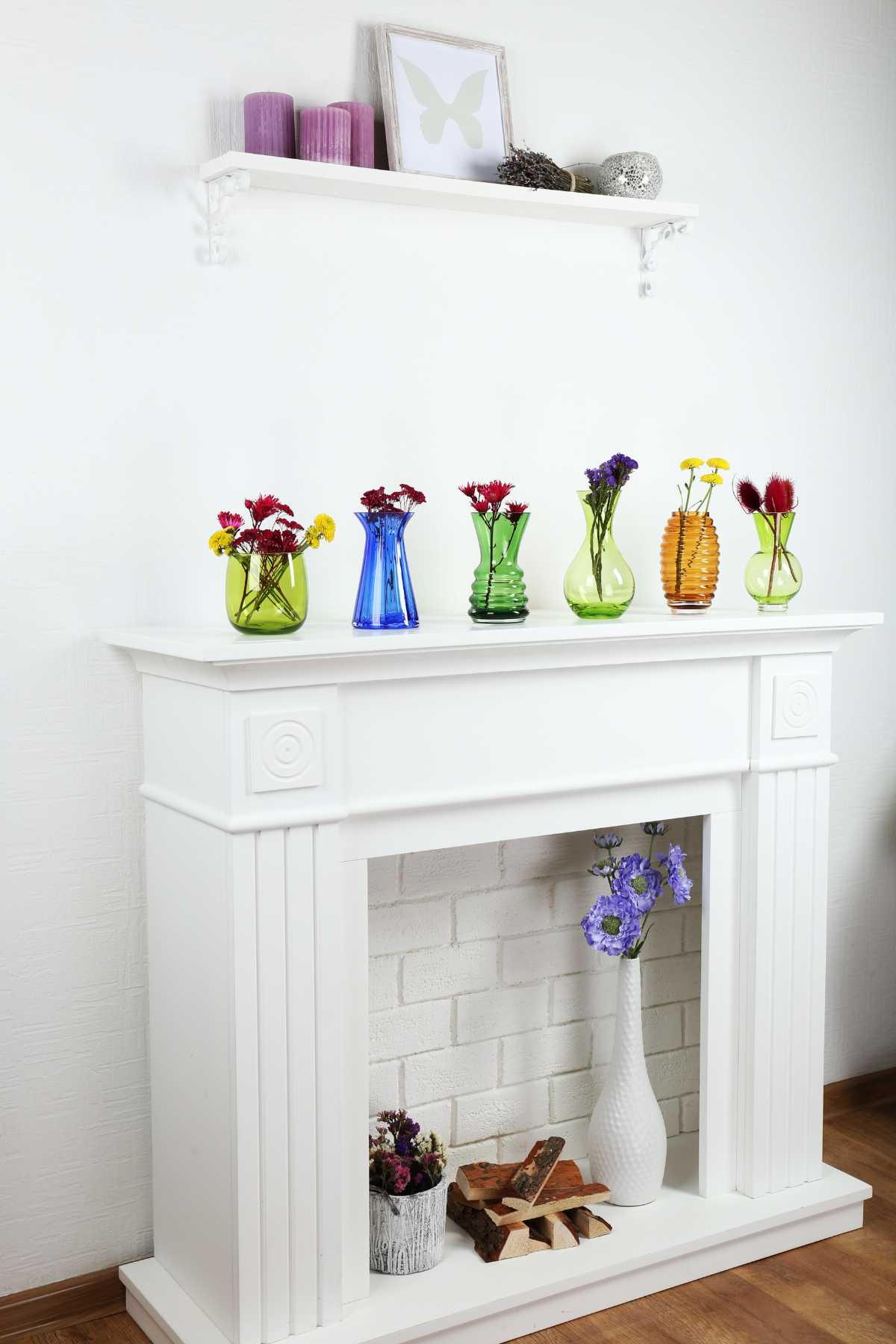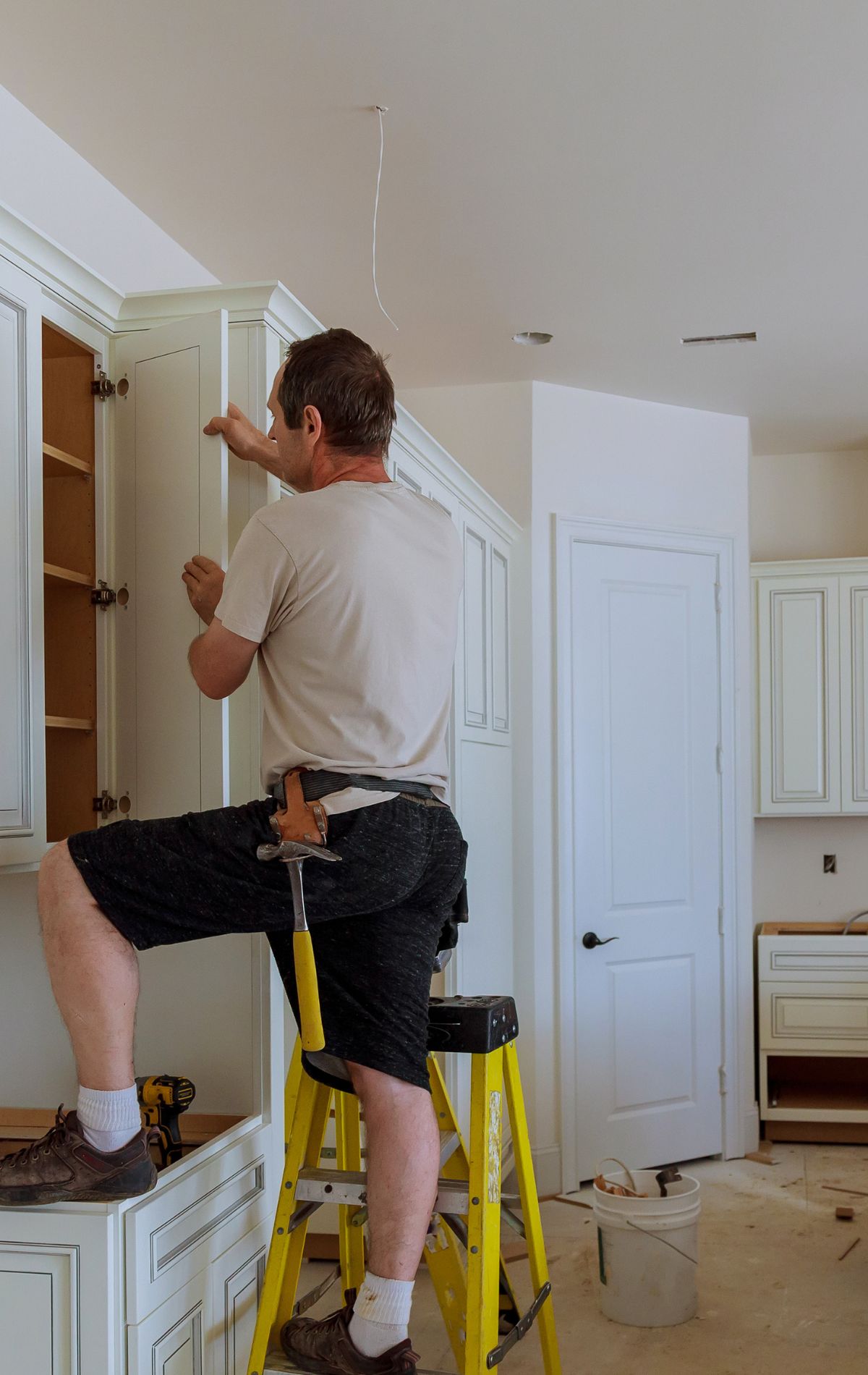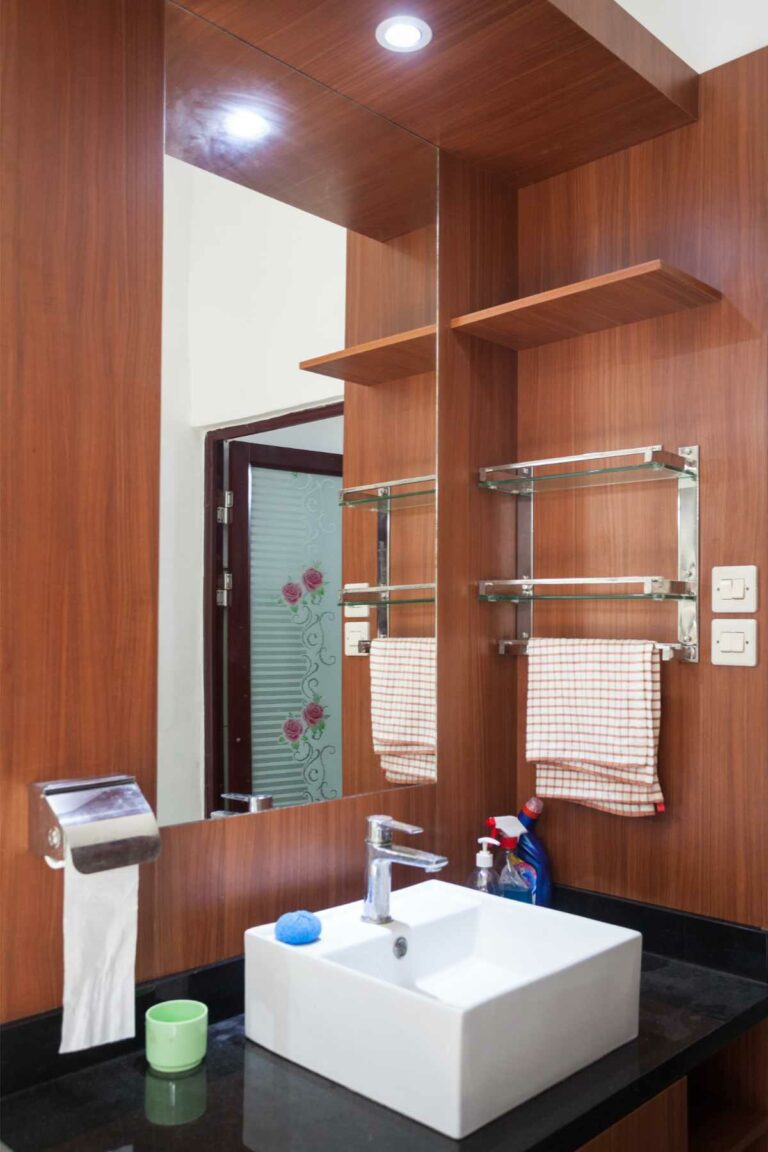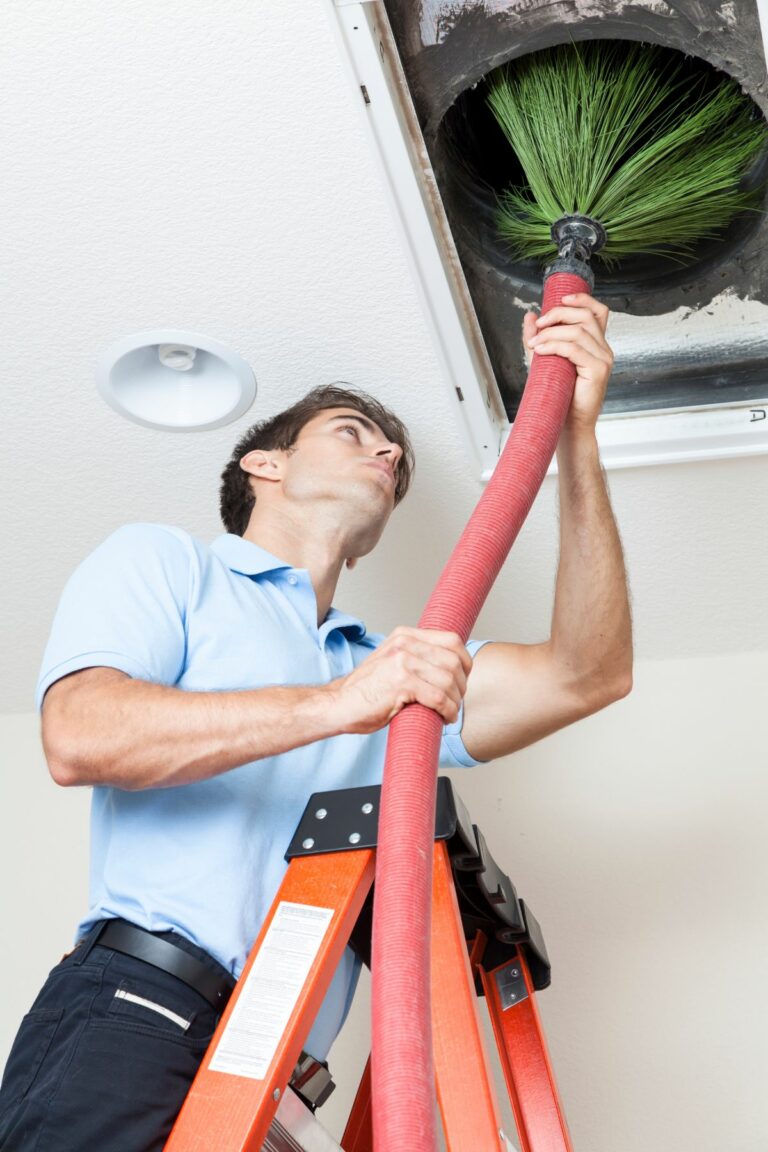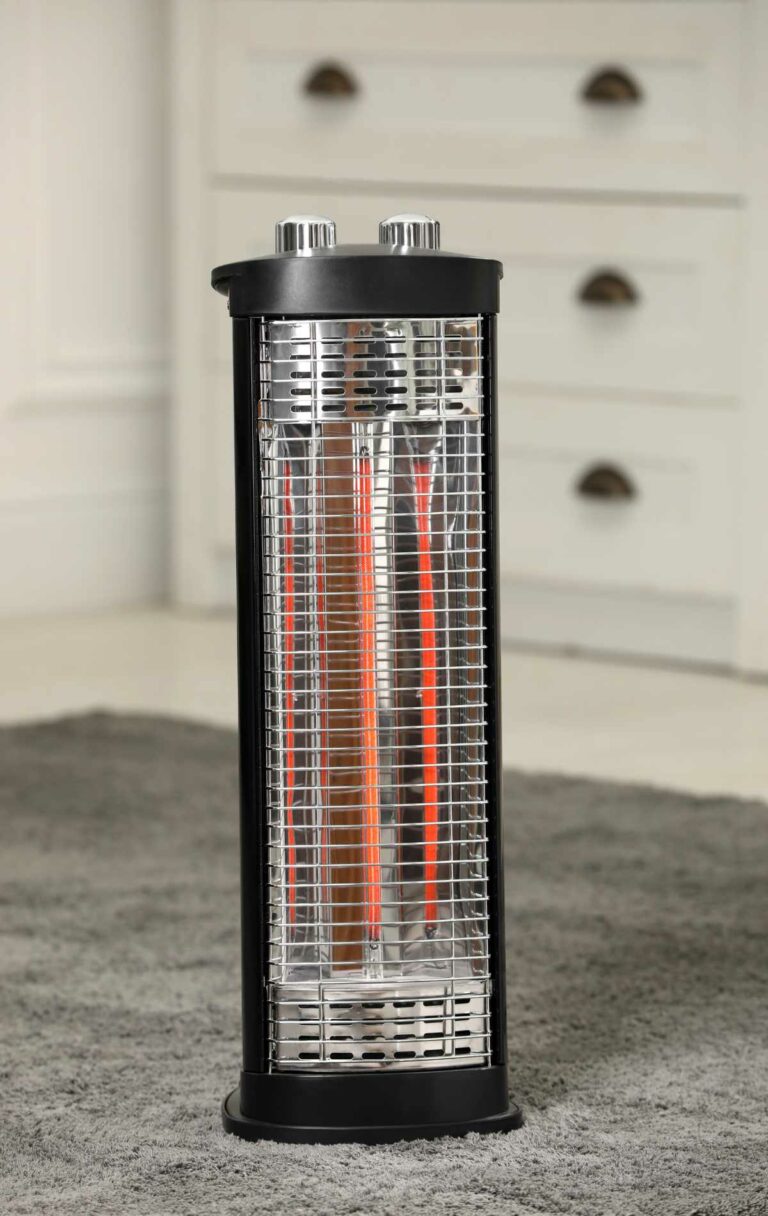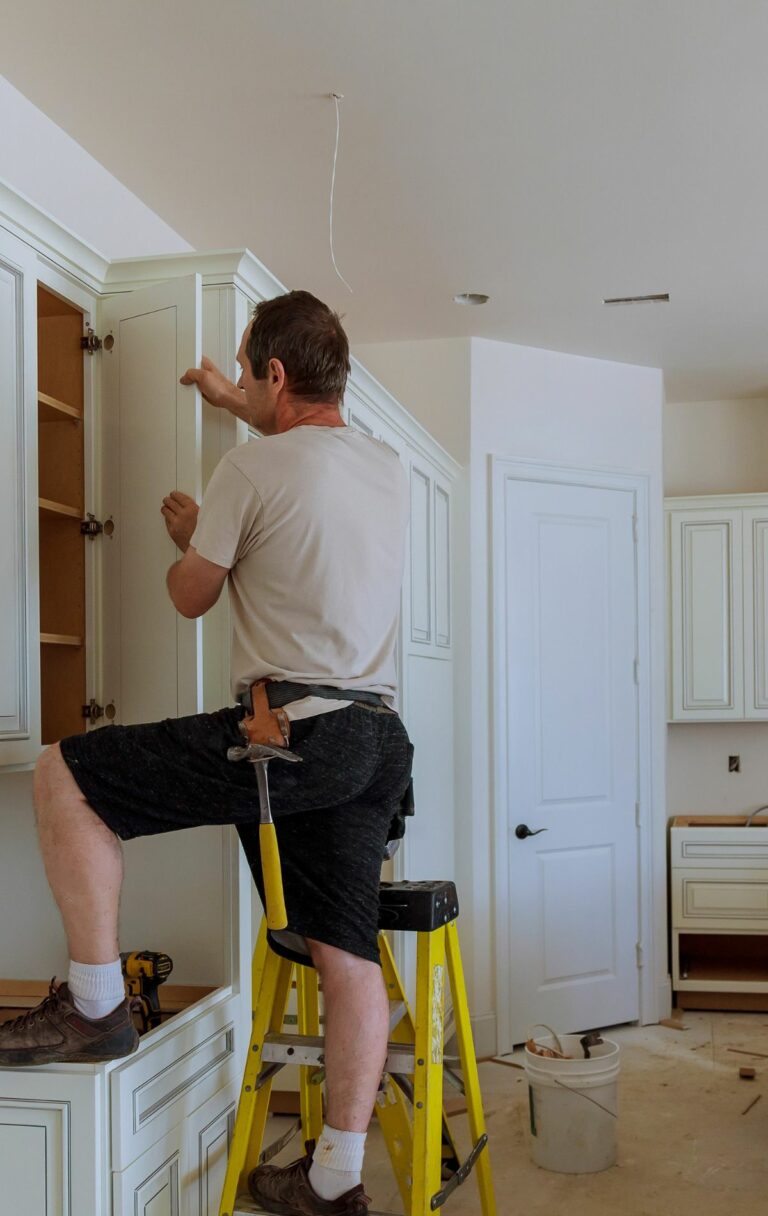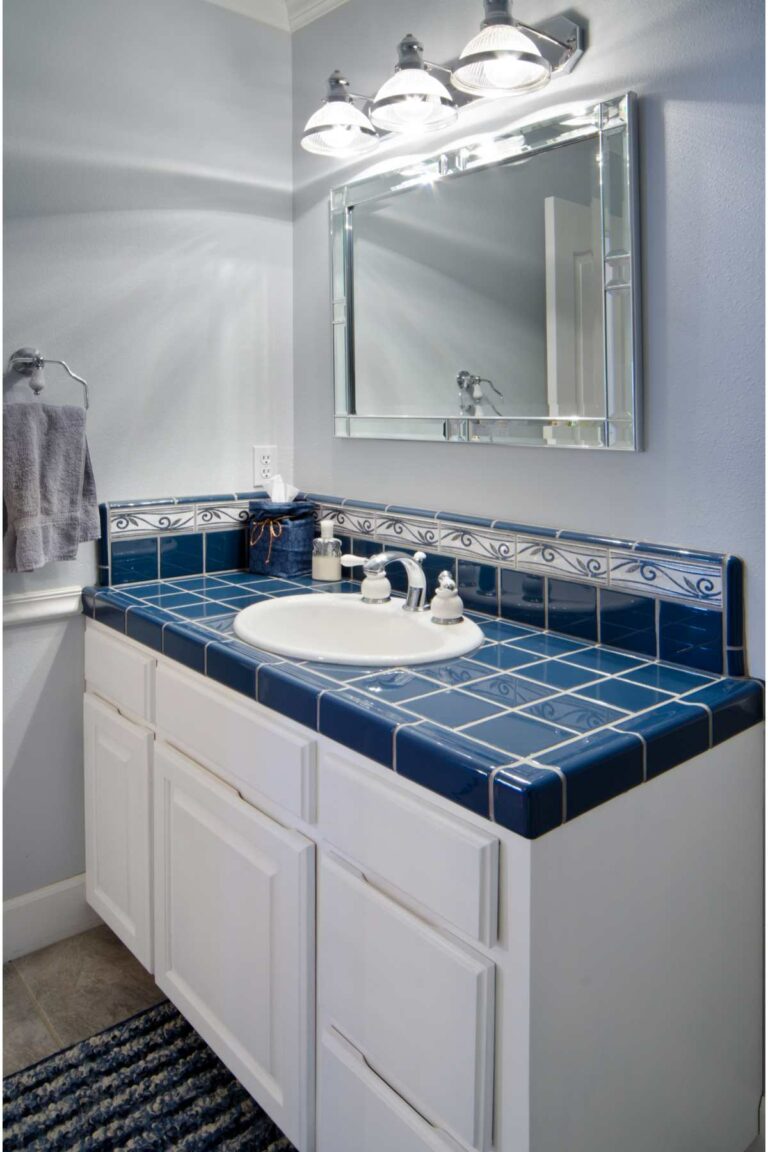Vinyl vs Laminate Flooring: Comparing Durability Pros And Cons
A quick comparison guide where we compare vinyl vs laminate flooring – covering durability, cost, noise level, water resistance, toxicity and other pros and cons that will help you make an informed decision based on your needs, budget, and design preferences.
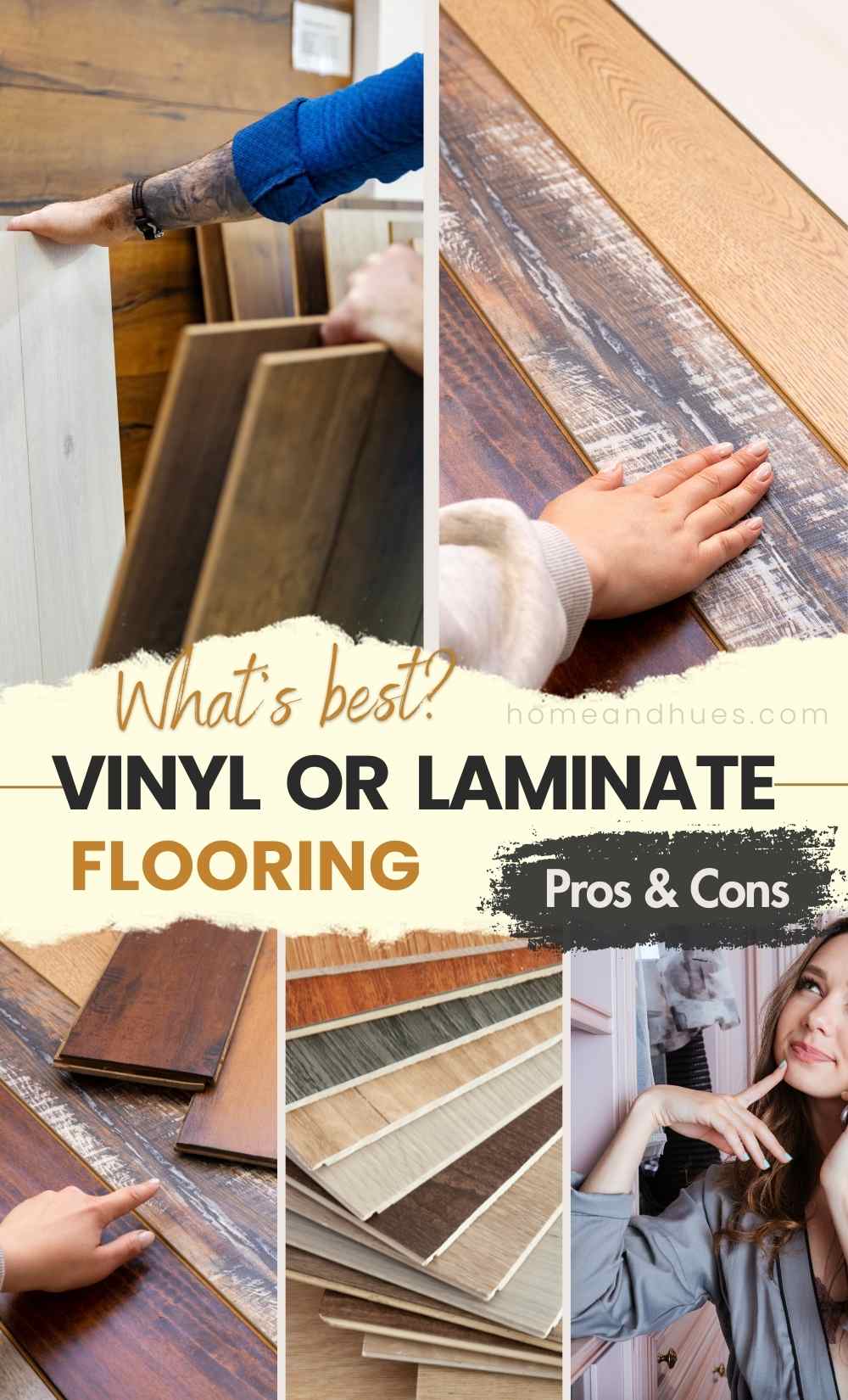
Are you torn between vinyl and laminate flooring for your home?
As someone who’s spent quite a bit of time laying down floors and experimenting with different materials, I’ve got a few insights to share about vinyl and laminate flooring. These two are popular choices, but they have their own sets of pros and cons. Let’s dive into what makes each one different in terms of durability, cost, noise, water resistance, purpose and safety.
Related: Best Tools Needed For Vinyl Flooring Installation
Overview: Vinyl Vs Laminate Flooring
First up, let’s clarify what we’re dealing with. Vinyl flooring is a synthetic material (plastic is the base) known for its durability and moisture resistance. It’s made primarily from PVC and comes in sheets, tiles, or planks.
Vinyl is often seen as a budget-friendly option in the flooring market. It used to be known as ‘laminated vinyl plank.’ However, it’s been rebranded as ‘luxury vinyl plank’ by the industry to give it a more high-end image.
Laminate flooring, on the other hand, is a multi-layer synthetic product (MDF wood fibers and resin) fused together through a lamination process. It usually has a photographic layer that mimics wood or stone, topped with a clear protective layer.
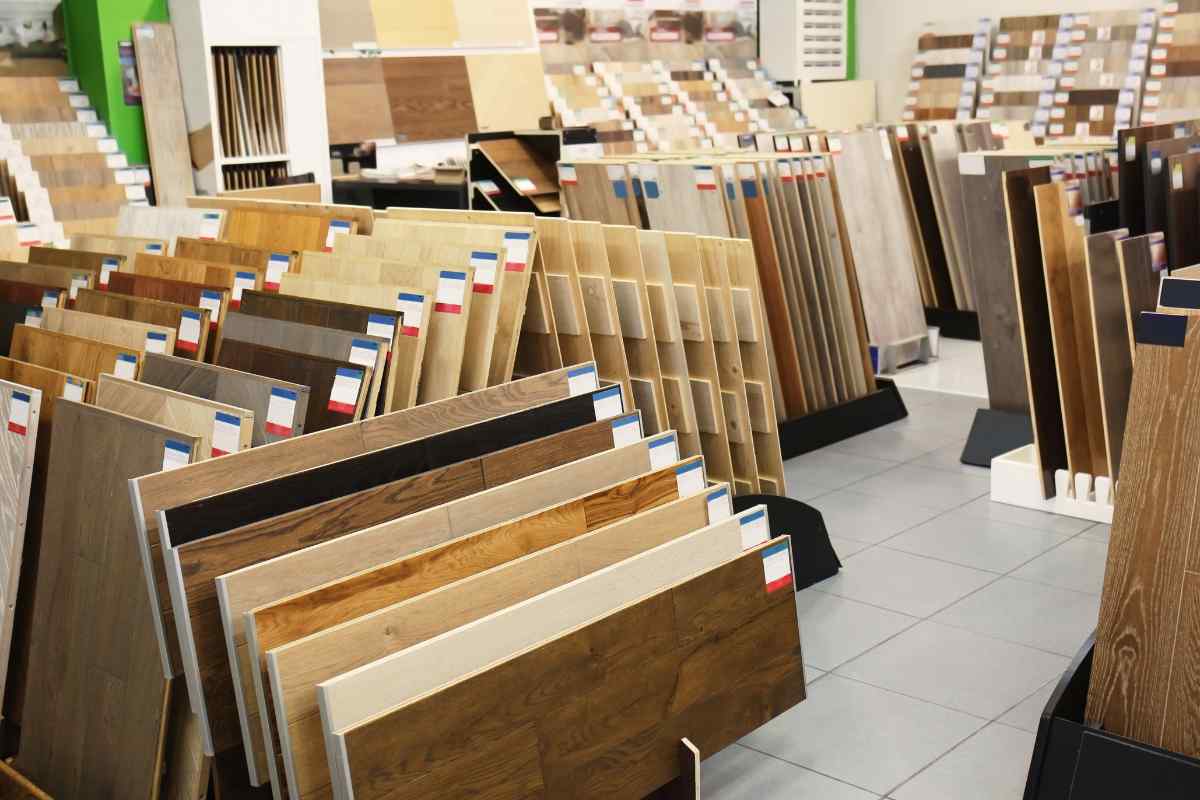
1. Durability: Vinyl vs Laminate
In the battle of durability, both have their strengths.
- Vinyl is like the tough kid on the block; it’s resistant to water, stains, and scratches. Great for high-traffic areas or homes with pets and kids. Vinyl is highly resilient, especially the luxury vinyl tile (LVT) and luxury vinyl plank (LVP) varieties.
- Laminate isn’t far behind, though it can be a bit more prone to scratches and doesn’t buddy up with water as well as vinyl does. When it comes to lasting without cracks and scratches, vinyl generally takes the lead. Although high-quality laminates can withstand wear as well.
1.2. wear layer thickness
- Vinyl Flooring: Usually has a wear layer ranging from 4 to 20 mils (a mil is one-thousandth of an inch). Thicker layers (12 mils and above) are more durable and suited for heavy traffic.
- Laminate Flooring: Doesn’t measure wear layer in mils but has an AC rating for durability. AC3 to AC5 ratings indicate higher durability. However, in comparison, vinyl’s top layers are often considered more effective in resisting wear and tear.
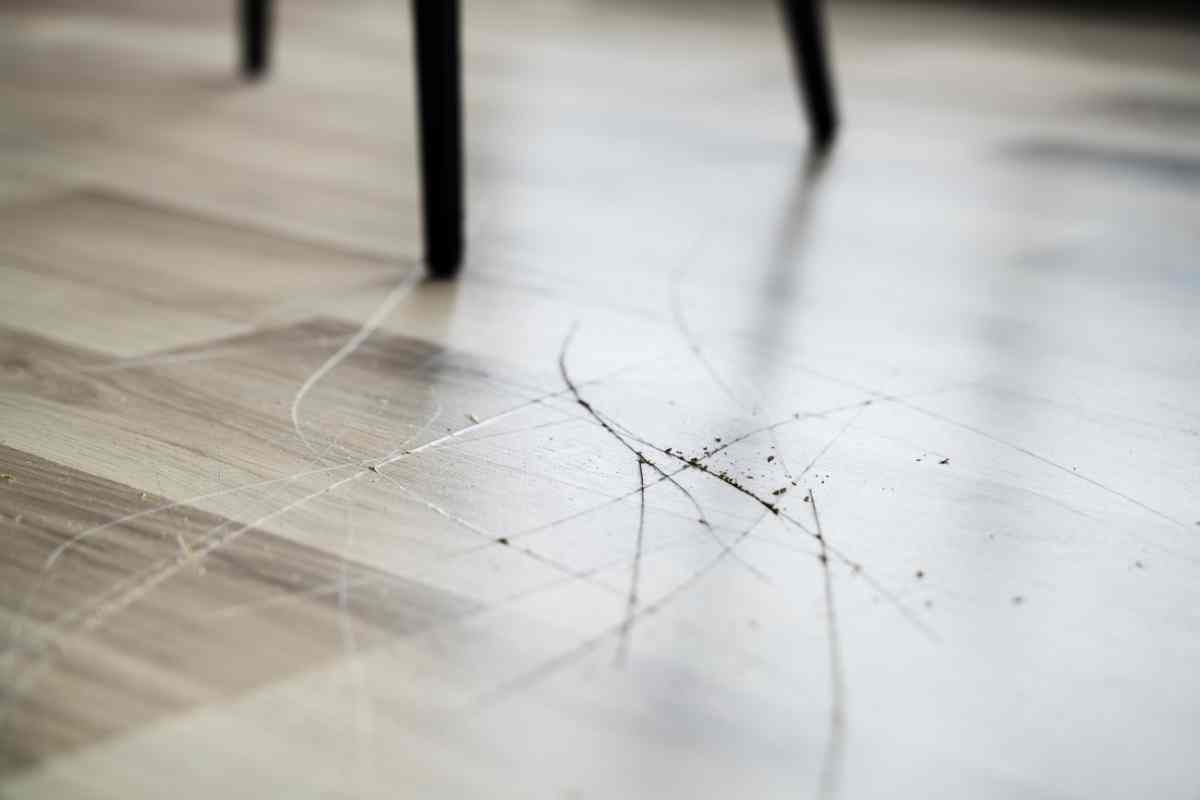
2. Cost Comparison
Money talks, right? Generally, laminate flooring can be a tad cheaper than vinyl upfront. But don’t just look at the price tag. Vinyl can be more cost-effective in the long run, especially in areas prone to moisture, where laminate might warp or get damaged.
Life Cycle Costs: Due to its resilience, vinyl flooring may require less frequent replacements than some laminate options. However quality laminates can last a long time but may need replacement sooner than premium vinyls.
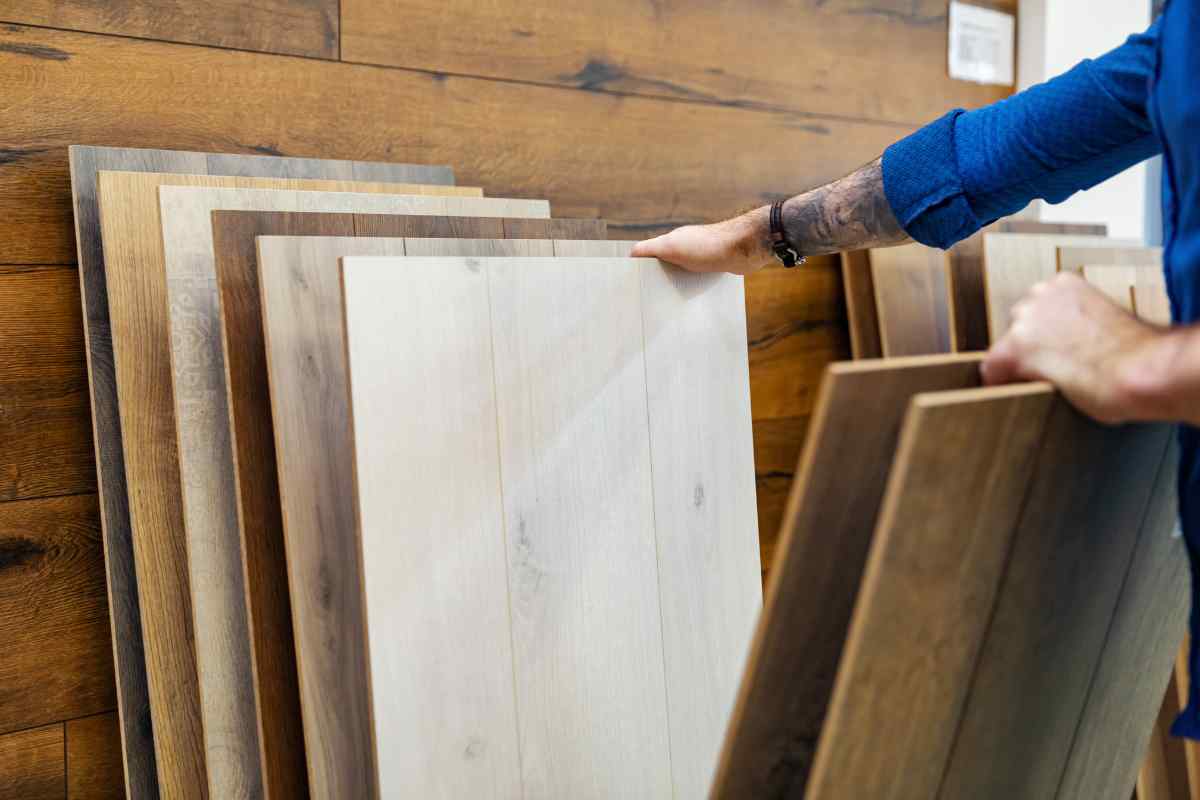
3. Noise Level: Which is Quieter?
Ever tip-toed on a noisy floor? Laminate can be a bit louder and produce a hollow sound when walked on, especially if it’s not installed over a good underlayment. Vinyl, especially the thicker kinds, tends to be softer and less noisy. It’s the go-to for a quieter floor.
Heads up: some links are affiliated & I may receive a small commission from qualifying sales. For more info see my disclaimer policy.
Using dense foam board underlayment like can help soften the sound of walking on LVP, and provide a bit of insulation.
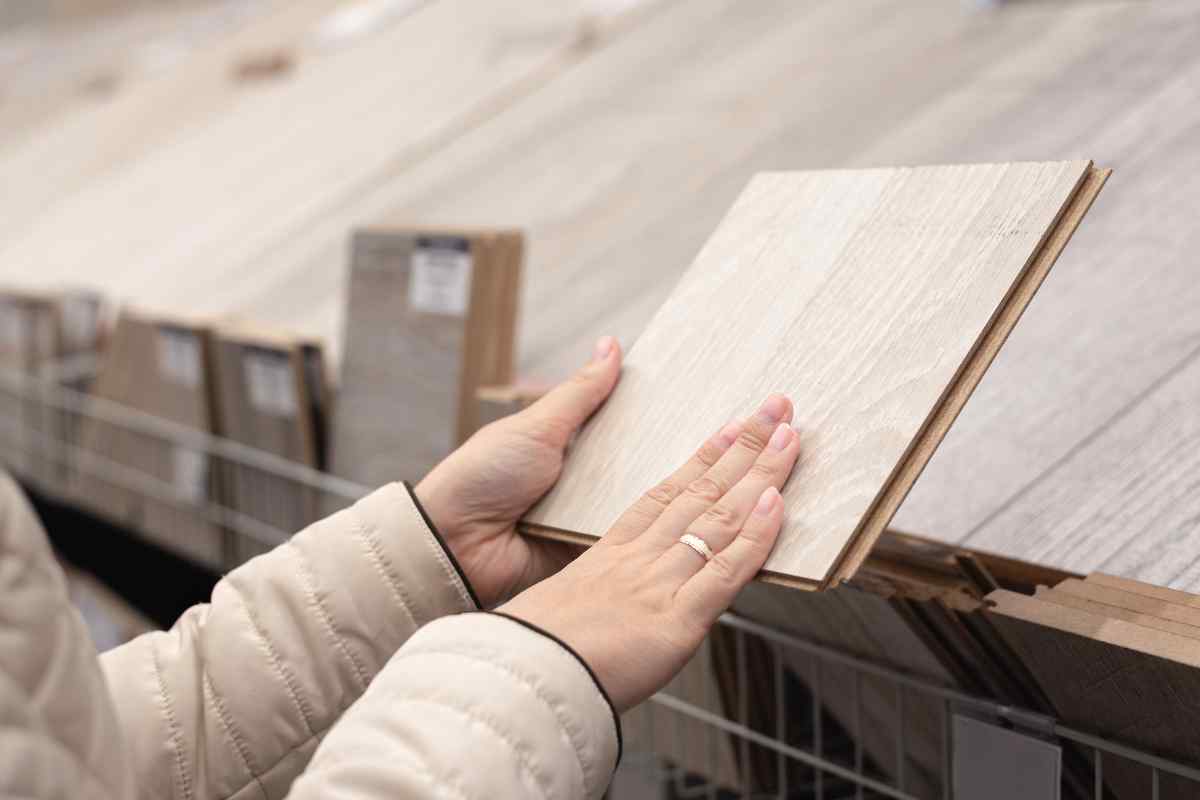
4. Water Resistance
Water resistance is a biggie. Vinyl is the champ here – it can handle splashes, spills, and humidity like a pro. Laminate? Not so much. It can withstand some moisture, but too much exposure, and you’ll see it swell and warp.
If you frequently wet-mop or steam-mop over laminate expect to have that water trapped under the floor and to have the top paper (printed layer) bubble and peel off.
From my experience, no mater how water resistant the laminate claims to be if water makes it between the planks and into the composite base layer it will start to deteriorate.
If you’ve got a kitchen, or a basement to floor, vinyl’s your guy.
5. Toxicity and Environmental Impact
Now, the environment and health are crucial. Both vinyl and laminate have raised concerns over toxins, especially in the adhesives and the manufacturing process. Newer models are much safer, but if you’re sensitive to chemicals or keen on green living, do your homework before picking one.
Recyclability: Vinyl is not widely recyclable, contributing to environmental concerns. Laminate flooring while not always recyclable, it decomposes more quickly than vinyl.
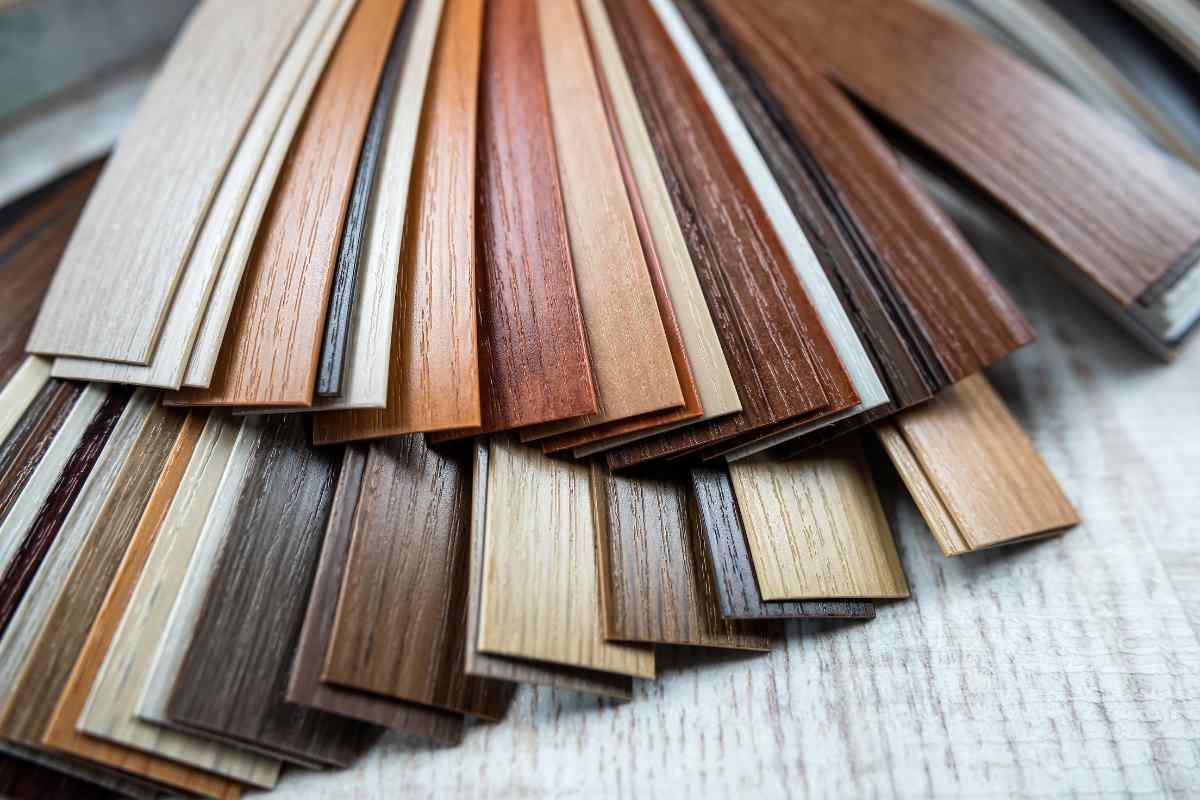
6. Installation and Removal
Generally speaking, while cutting laminate can be tough on a saw blade, the actual process of assembling the boards and completing the room is quite straightforward and easy.
Putting in LVP mainly requires a box cutter for cutting, but fitting the boards together without nicking the edges and corners or ensuring the sealing edge stays intact can be a bit challenging.
7. Aesthetic Appeal Of Laminate Vs Vinyl Flooring
Vinyl Flooring:
- Offers a broad spectrum of designs, including hyper-realistic wood and stone imitations.
- Thickness and embossing can add to the real feel.
Laminate Flooring:
- The photographic layer can beautifully reproduce the look of natural materials.
- The texture can sometimes be matched to the image layer, enhancing realism.
FAQs Vinyl vs laminate comparison
Vinyl is generally better for homes with pets. It’s more scratch and moisture-resistant, making it ideal for pet accidents and nail scratches.
Yes, both vinyl and laminate flooring are DIY-friendly when you have the right tools. Many come with easy-to-install locking systems. However, vinyl can sometimes be easier to cut and fit.
Vinyl floors can last 10-20 years, depending on the quality and maintenance. Laminate floors usually last around 15-20 years.
Answer: Yes, both are suitable for high-traffic areas. Vinyl is more durable and better for areas prone to moisture, while laminate is also durable but less resistant to water.
Yes, but it’s easier to repair or replace a damaged plank of vinyl flooring. Laminate can be more challenging to fix due to its layered structure.
For laminate, an underlayment is essential for comfort, noise reduction, and moisture protection. For vinyl, it depends on the type of vinyl and the specific installation requirements.
Vinyl plank is the better choice for a basement. Even with high-quality laminates out there, vinyl handles basement moisture better.
Laminate flooring typically looks more realistic than vinyl, closely mimicking the appearance of natural wood.
Final Verdict: Which is Right for You?
Choosing between vinyl and laminate flooring boils down to your specific needs. If you prioritize water resistance, especially in damp areas like bathrooms, vinyl might be your best bet. However, if you’re looking for an eco-friendlier option with a wood-like feel, laminate could be the right choice.
Assess your needs, consult with professionals, and make an informed choice that complements your home and lifestyle.
©HomeAndHues. Content and photographs are copyright protected and need prior permission to use. Copying and/or pasting full recipes to other websites and any social media is strictly prohibited. Sharing and using the link of this recipe is both encouraged and appreciated!




